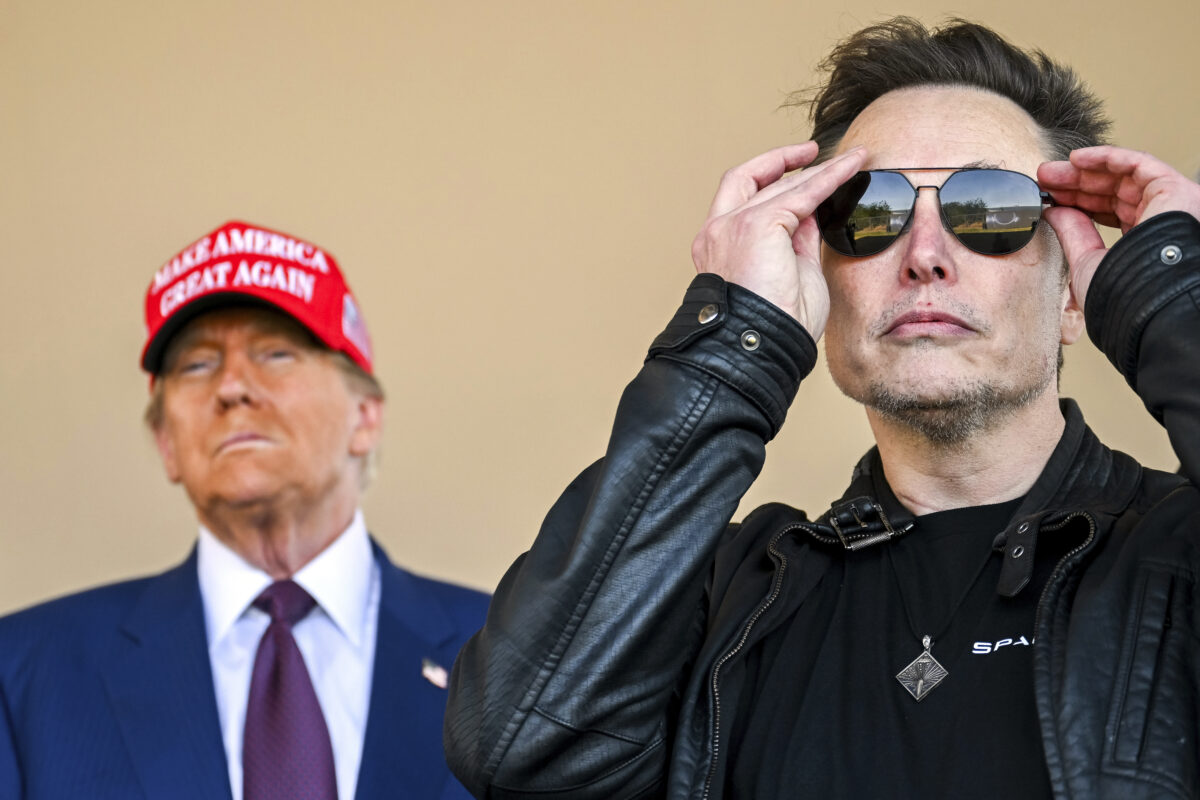Trump Demands ‘Radical Left’ Reuters Return $9 Million to US Gov — That He Gave Them — After Baseless Elon Musk Claim

Brandon Bell/Pool via AP
President Donald Trump unleashed on “Radical Left Reuters” over a 2018 Pentagon contract to “study large-scale social deception”—a contract awarded during his own administration—and demanded the news agency “GIVE BACK THE MONEY, NOW!”
The brief but furious outburst was pushed out early on Thursday as the president cited the revelation as a finding of his newly minted Department of Government Efficiency (DOGE). Trump posted on Truth Social:
DOGE: Looks like Radical Left Reuters was paid $9,000,000 by the Department of Defense to study “large scale social deception.” GIVE BACK THE MONEY, NOW!
Indeed, DOGE’s agency head Elon Musk boosted a post on X claiming the contract showed the “news agency received millions for social engineering.”
Musk’s implication was more controversial, that Reuters, a respected global news agency, was somehow running disinformation campaigns on behalf of the Pentagon. That, however, appears to be a misreading, or deliberate misrepresentation, of a publicly available government document.
The contract, first flagged by MAGA influencer Ian Miles Cheong, surfaced after Musk, apparently disgruntled by a Reuters article arguing DOGE cuts were politically motivated, asked followers to “find out” how much federal money the organization had received.
The idea, predictably, fueled a fresh round of conspiracy theorizing that once again made its way right to the Oval Office.
A quick fact-check reveals, however, something else.
The contract in question, issued in 2018 during the first Trump administration, was actually awarded to Thomson Reuters Special Services for cybersecurity research.
Issued by the Department of Defense through the Air Force Research Laboratory and DARPA, the contract is described on the government’s USA Spending website as being in relation to “Active Social Engineering Defense (ASED), Large Scale Social Deception (LSD).”
The ASED program aims to create scalable systems capable of detecting, analyzing, and mitigating threats to bolster cybersecurity.
While Musk pushed the idea that Reuters had been paid to carry out “large scale social deception” Trump made it closer to the truth in saying that the contract was to “study” it.
What the president missed in his attack on the news agency was that the company awarded the contract was Thomson Reuters Special Services, which operates separately from Reuters News and specializes in fraud detection and risk management—areas directly relevant to countering cyber threats. Organizations like LexisNexis, Bloomberg, and Wolters Kluwer operate in similar spaces, offering fraud prevention and compliance tools.
Debate over government expenditure is fair but after Musk and Trump’s intervention a contract awarded to a risk analytics firm to develop cybersecurity defenses has now been twisted into an elaborately misleading narrative about Reuters’ alleged role in state-sponsored media manipulation – a narrative that just happens to lend itself well to Trump’s media vendetta and Musk’s bid to cut costs.
In a statement to Mediaite Steve Rubley, CEO of Thomson Reuters Special Services, said the following:
Thomson Reuters Special Services (TRSS), LLC is a separate U.S. legal entity governed by an independent Board of Directors, that operates independently from Reuters News. Recent public discourse has conflated these entities and has inaccurately represented the nature of the business between TRSS and the Department of Defense.
TRSS has provided software and information services to U.S. government agencies across successive administrations for decades, to assist in identifying and preventing fraud, supporting public safety, and advancing justice.
Reuters News is the leading global provider of business, financial and world news in keeping with the Thomson Reuters Trust Principles which govern its newsroom. Thomson Reuters commercial agreements, including Reuters News commercial agreements, have no influence over or impact on Reuters editorial coverage.





Comments
↓ Scroll down for comments ↓